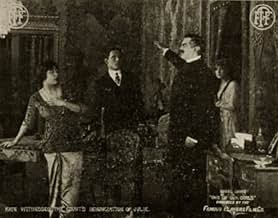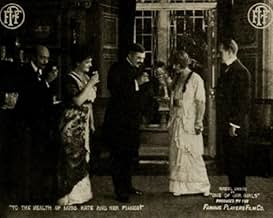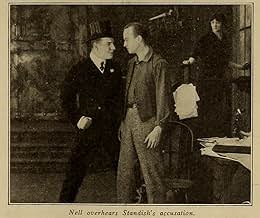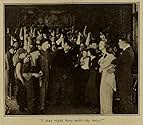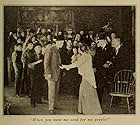Every link of this chain is a strong one. The adaptation is from the pen of Miss Eva Unsell. Miss Unsell aimed to catch the spirit of the play, the depiction of the young New Yorkess who is unafraid to do those things her impulsive nature prompts her to do, who is bewitchingly unconventional with those she loves, treating with superb hauteur those she abhors, and unhesitating to put in temporary suspense her own reputation to shield the imperilled character of an indiscreet married friend. The screened result is splendidly revelatory of these characteristics as well as many lovable others. Thomas N. Heffron directs the picture. No more need be said than that he displays fine regard for minor details. His work is polished. Miss Dawn will be welcomed by picturegoers. From her opening scene, in which she is shown awaking with a smile on her face, then wending her pajamaed way to the adjoining bathroom, and later indulging in her morning dumbbell and other athletic exercise, down to the fadeout, she holds tightly the sympathy and the interest. Sharing the honors with her is William Roselle, who plays Captain Gregory, the English sweetheart of the American girl. Mr. Roselle gives a delightful performance. His interpretation of the genteel and reserved Englishman will be sure to please the great British public even more than it does the American. Slow he may be in lovemaking, although he makes rapid progress under his girlish New York tutor, but he is prompt to fight when aspersions are cast upon the reputation of his fiancée. Matters do have for her an ugly look, but he asks no questions. Hal Clarendon has the role of the villainous Count, the man who puts away his legal wife that he may marry Julie, daughter of the wealthy Foublanques. Mr. Clarendon's work is of the best, strong and finished. Miss Marinoff's portrayal of Julie, the French cousin and close friend of the heroine, will appeal to the sympathies. Married against her wishes, in a few months her heart turns from the scoundrel to whom she has been formally bound and to the man who was really her choice. Her efforts to induce Shipley to take her with him as he leaves France to avoid scandal and his struggles inward and outward as he tries to prove to her that she must remain with her husband furnish much of the pathos of the story. Charles Krauss and Mme. Dahlberg finely interpret the Foublanques, the fashionable couple whose ambitions force their daughter into such an unhappy marriage. Mr. Backus is strong as the distinguished looking family doctor whose detective work uncovers the skeletons in the closet of the Count; the physician who does not consider that ministering to the health of his patients fulfills all the obligations he owes them. Miss Bainbridge, in her portrayal of the unfortunate wife, holds the sympathy from the time she first appears in the hut where she is held as a drug-fed prisoner to her dramatic ending as she jumps into the "kissing well" which plays so prominent a part in the story. "One of Our Girls" depends for its quality not upon sensational incidents. It is straight drama, with cumulating action. There is a strain of pathos, but it is offset by bits of delightful comedy, such, for instance, as the snub administered by Kate to the flirtatious count, both in the railway compartment when she first sees him and later when she calmly ignores the formal introduction. There will be laughter in any house when, in response to the indignant remonstrance of Mme. Foublanque at the spooning indulged in by the lovers, Kate calmly kisses and rekisses the captain. Or when, at the dinner party, Kate hauls out of his seat the dignified captain and puts him through the paces of the "new American tango." Or again, when the captain, as the acquaintance progresses, takes the hand of Kate to kiss it; she withdraws her hand and raises her face to the captain's. The captain meets the issue, but with less bravery than he displays when he faces the count in deadly combat. This duel, by the way, is lightened by the excessive courtesy shown by the many saluting, silk-hatted participants. Of dramatic situations, of suspense, there are many, the strongest of all being that of the tragedy at the well and the multiplying incidents that follow upon it. "One of Our Girls" is a fine picture. - The Moving Picture World, June 20, 1914

